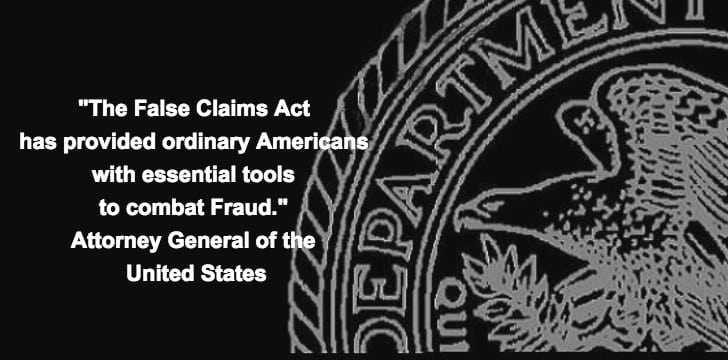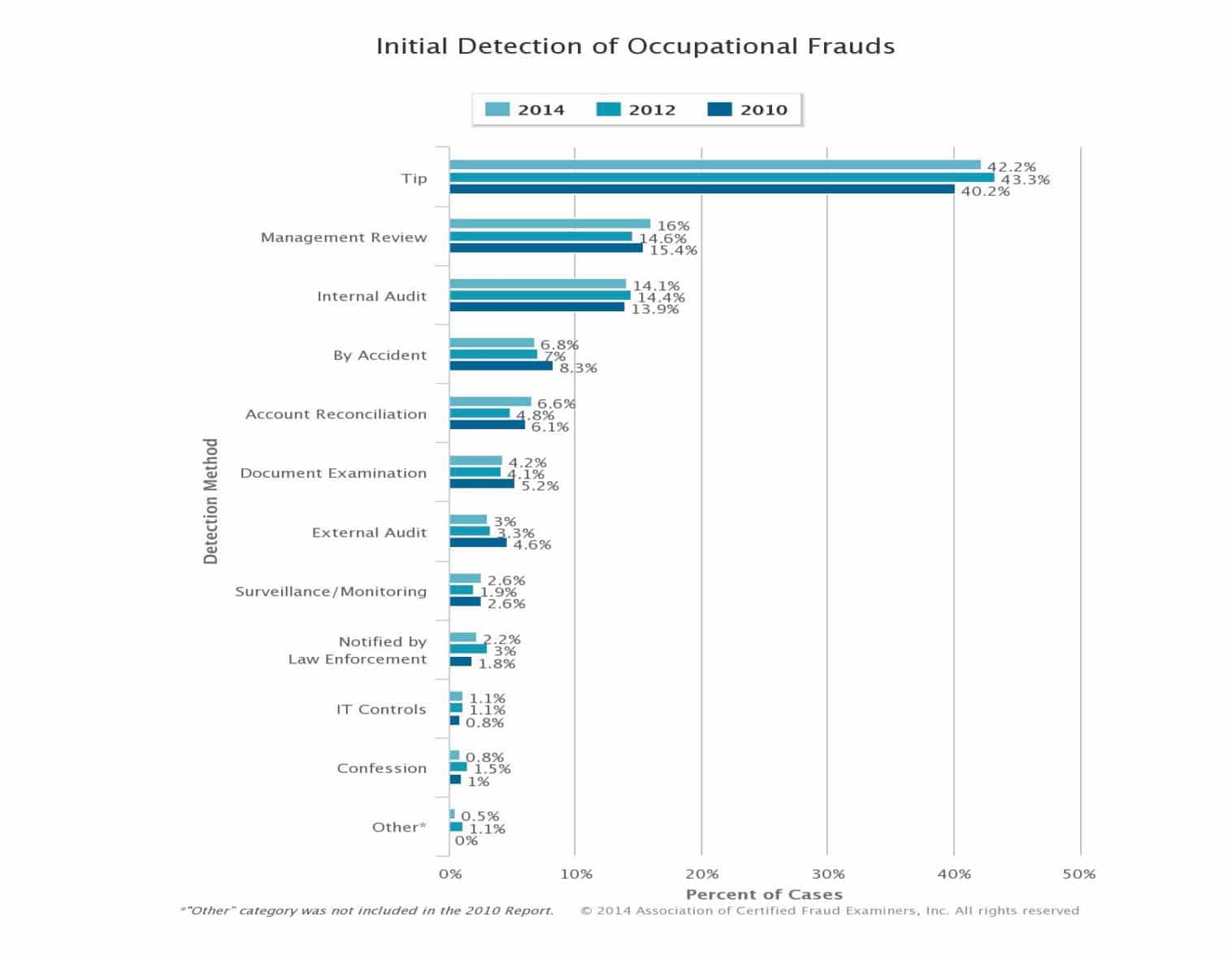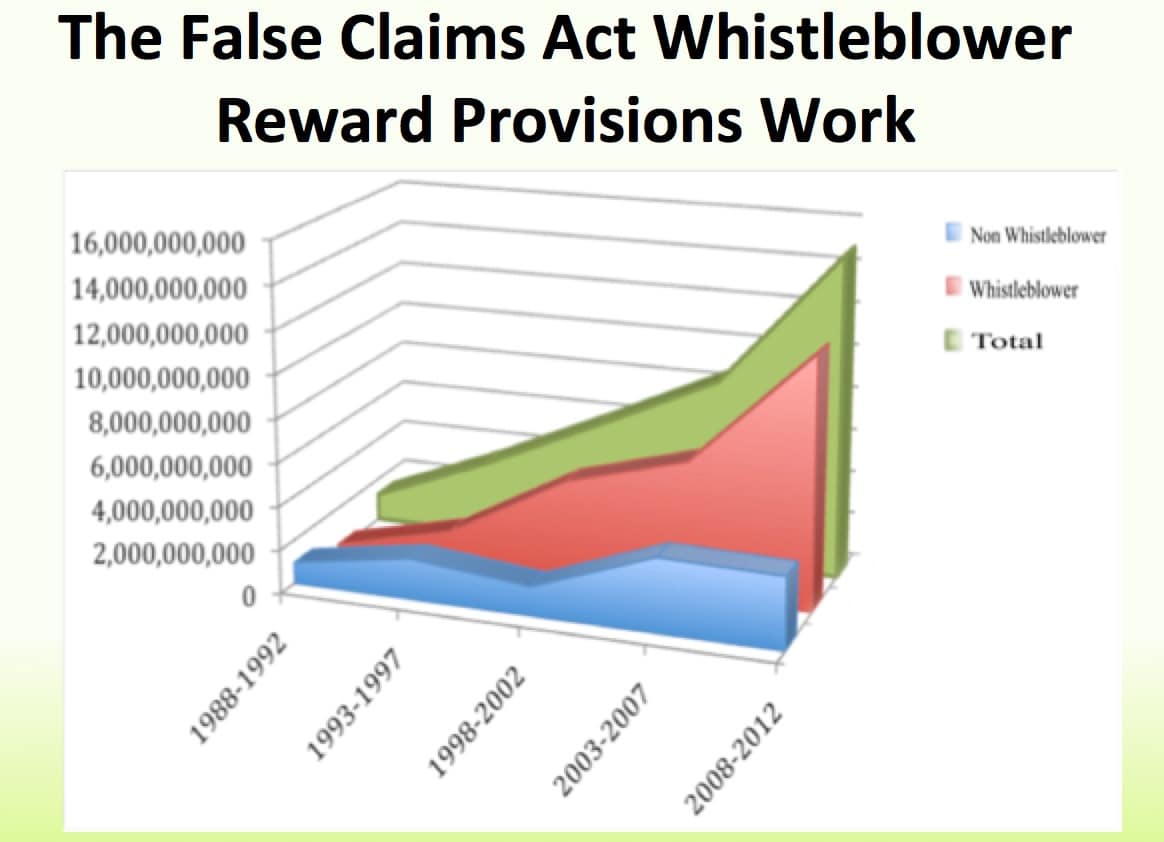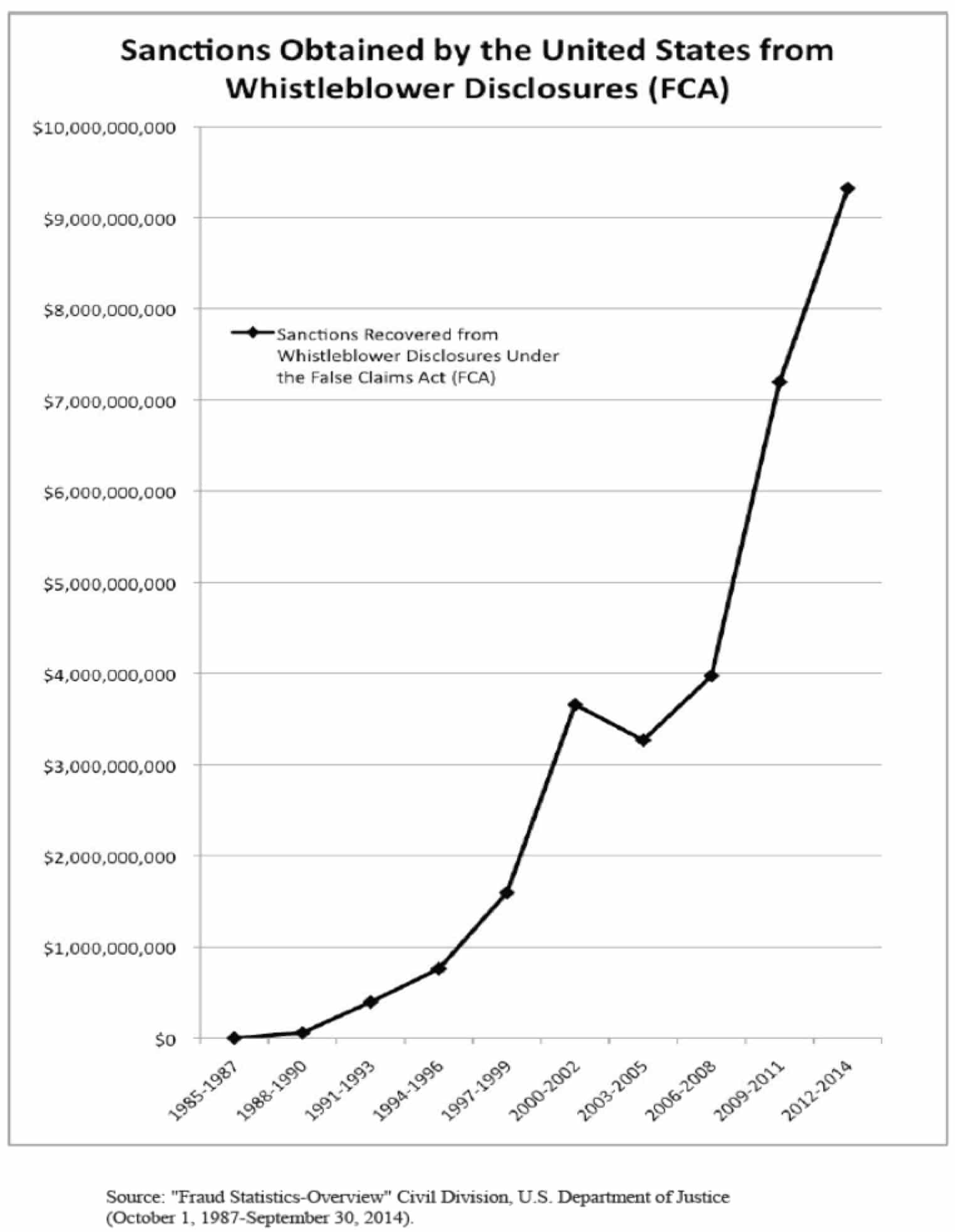False Claims Act

President Abraham Lincoln signed the False Claims Act (FCA), 31 U.S.C. §§3729-2733 on March 2, 1862. Since the FCA was signed into law it has become the most successful anti-fraud act in the United States. In 1986 major changes were made to the FCA, which increased damages significantly for these cases by, among other changes, raising penalties to be between $5,000-$10,000.
One of the most important aspects of the False Claims Act are the qui tam, or whistleblower, provisions. It allows any individual or non-governmental organization to file a False Claims Act lawsuit on behalf of the United States Government. The government is required to investigate all whistleblower claims and can either “intervene” and proceed with the case or decline, in which case the whistleblower may proceed with the action.
Since the act was amended in 1986, the U.S. government has recovered over $48 billion. Of this amount, $33,230,410,007 has come from whistleblower cases. The U.S. Assistant Attorney General has said that this whistleblower reward law is “the most powerful tool the American people have to protect the government from fraud”. While a large portion of this taxpayer recovery is returned to the government, whistleblowers are awarded significant amounts of the settlement for their bravery and in recognition that many of them have risked their livelihoods. Not only do these whistleblower cases play an instrumental role in outing fraudulent behavior within the U.S., they also aid in the fight against international corruption.

Important Links
- Text of the False Claims Act.
- Legislative History and Other Documents
- The law Librarian’s Society of Washington, DC’s summary of the legislative history, complete with links, reports and summaries.


Major Cases
- Vermont Agency of Natural Resources v. U.S. ex rel. Stevens, 529 U.S. 765 (2000) (Holding that permitting whistleblowers to file claims on behalf of the United States to recover monies obtained fraudulently by contractors is constitutional).
- Rockwell International v. U.S., 549 U.S. 457 (2007) (standing requirements for whistleblower to qualify for reward) (FCA amendments enacted in 2010 modified this ruling).
- U.S. ex rel. Davis v. District of Columbia, 679 F. 3d 832 (D.C. Cir. 2012) (rejecting narrow interpretation of “original source”).
- Moore v. California Institute of Technology, 275 F.3d 838 (9th Cir. 2002) (Setting forth elements of Major Frauds Act claim in addition to a False Claims Act claim).
Hearing at the House of Representatives: Oversight on the False Claims Act.
Description: Senator Charles Grassley, a longtime champion of strong whistleblower programs testified against the Chamber of Commerce’s proposed reforms to restrict whistleblower rights under the Act. In his testimony, Senator Grassley quoted from Kohn, Kohn and Colapinto partner Stephen Kohn‘s statements on these proposed reforms. Read Senator Grassley’s testimony here and Mr. Kohn’s written testimony here.
You can access PDF transcripts of the other witness testimonies here.
NBC News: Bulletproof Vests Under Scrutiny. This report followed Dr. Aaron Westrick’s False Claims Act disclosures.
